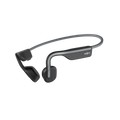Congratulations! You’re feeling better and your doctor has cleared you to run again. But before you lace up and bang out 16 kilometers, there are a few things to consider so you don’t reinjure yourself and suffer another setback.
Understand Your Injury
Were you sidelined because of an injury caused by a physical imbalance? Or were you in a boot for six weeks due to a stress fracture? It’s important to understand how you became injured so you can avoid a similar injury when you return to running.
For example, if you suffered from IT band syndrome, did you address the underlying cause? In some cases, it might be overuse—too many kilometres too quickly—but in others, it might be indicative that your hips or glutes are weak. In that case, they need to be properly strengthened so you don’t, er, run into the same problem.
Walk Before You Run
It’s tempting to just start running. You’ve missed it, after all, and you’re itching to get back in shape. But you need to remind your body what it’s like to move in certain ways. Maybe you spent weeks or months on the bike or in the pool—those movements require different demands from the body than running.
Try walking for 45 minutes without pain before you pick up the pace. You can also add walk breaks to your runs—60 seconds of light running and 90 seconds of walking, for example—to help ease back into the sport.
Set Smart Expectations
After you’ve been sidelined for a certain amount of time, there’s a good chance you may have lost some fitness, even if you’ve been cross-training. And that’s okay—your body needed to heal.
Avoid signing up for a race until you’ve been back on your feet for a few weeks. That will help take the pressure off and let you return slowly, without risking re-injury.
And when you do race, know that you may not be totally back to where you were before your injury. In some cases, you may be even faster and stronger, especially if you focused on an underlying problem that caused injury, like weak hips. But don’t overdo the training or the race if you’re not feeling 100 percent.
Don’t Rely on Medication
If you’re popping vitamin I—ibuprofen—like candy, it’s a sign that something isn’t quite right. Over-the-counter medications can make you feel better during a run but can also mask the pain that’s telling you something is wrong.
Plus, consuming too many medications can cause GI distress (ibuprofen) or liver problems (acetaminophen).
How do you get back into running after an injury? Tell us on Facebook, Instagram, or Twitter!












